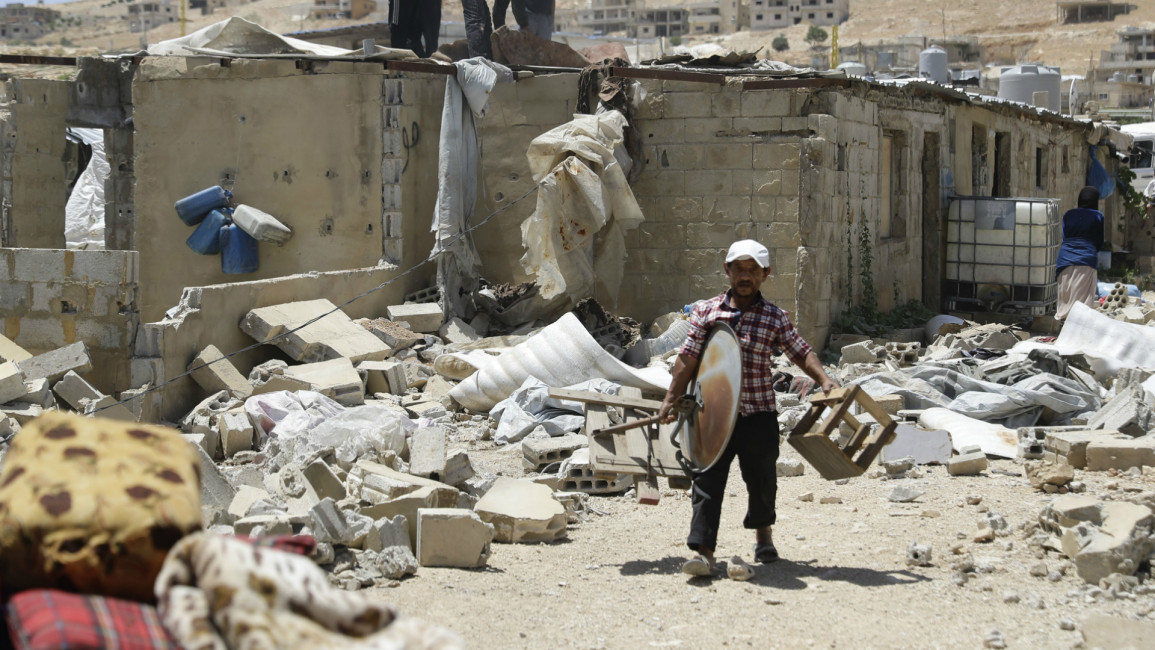Keen not to encourage Syrians to settle permanently, the government had given refugees in the village of Arsal until July 1 to demolish shelters made of other materials than timber and plastic sheeting, which it considers illegal.
"At 4:30 am on July 1, military units moved into several camps in Arsal and demolished at least 20 homes," said a joint statement by seven aid groups, including Save the Children, the Norwegian Refugee Council, and Oxfam.
"We fear that this is the start and more demolitions will take place tomorrow," it added.
An estimated 15,000 people, including at least 7,500 children, would be affected by the demolitions which would impact up to 3,000 units, the aid groups said.
A Lebanese security source confirmed to AFP that demolitions have started but said that only four empty concrete houses had been destroyed.
The head of the Arsal municipality, Bassel al-Hujeiri, added that Monday's demolitions were very "limited" and impacted only homes made almost completely out of cement.
The move, he said, "serves as a warning for remaining refugees who have yet to comply with the army's decision."
The government's ultimatum had prompted refugees to destroy their own homes in the weeks leading up to the deadline.
As of June 27, less than half of the hard shelters in Arsal had been demolished by their inhabitants, the aid groups said in Monday's statement.
They also urged authorities "to give alternatives to refugees, allow them to retain their personal belongings and give them more time to place their families in safety" before carrying out more demolitions.
Lebanon, a country of some four million people, hosts between 1.5 and two million Syrians on its soil after they fled the eight-year civil war next door.
Nearly a million of these are registered as refugees with the United Nations High Commission for Refugees.
Lebanon only allows only informal camps to prevent the permanent settlements of Syrian refugees, who politicians and part of the Lebanese population blame for a string of economic woes.
Rights groups, including Amnesty International, have warned that Lebanon is using restrictive measures such as evictions, curfews and raids to encourage repatriation.
Follow us on Twitter: @The_NewArab


![President Pezeshkian has denounced Israel's attacks on Lebanon [Getty]](/sites/default/files/styles/image_684x385/public/2173482924.jpeg?h=a5f2f23a&itok=q3evVtko)



 Follow the Middle East's top stories in English at The New Arab on Google News
Follow the Middle East's top stories in English at The New Arab on Google News


